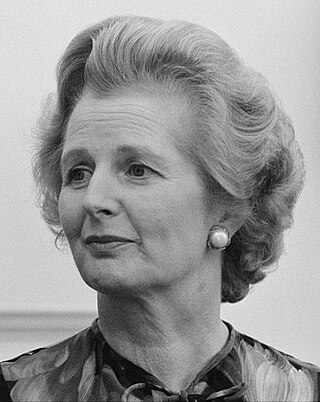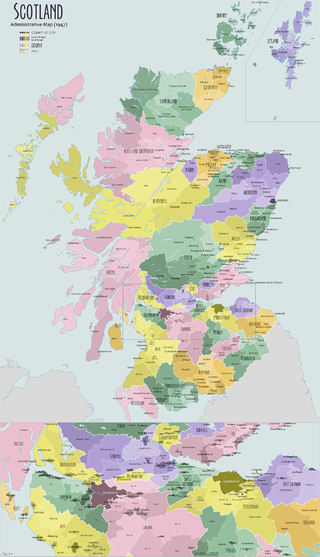
The 2002 Irish general election to the 29th Dáil was held on Friday, 17 May, just over three weeks after the dissolution of the 28th Dáil on Thursday, 25 April by President Mary McAleese, at the request of the Taoiseach, Bertie Ahern. The general election took place in 42 Dáil constituencies throughout Ireland for 166 seats in Dáil Éireann, the house of representatives of the Oireachtas, with a revision of constituencies since the last election under the Electoral (Amendment) Act 1998.
The 1922 Manitoba general election was held on July 18, 1922 to elect Members of the Legislative Assembly of the Province of Manitoba, Canada. The United Farmers of Manitoba won a narrow majority in the legislature.

The first elections to the new local authorities established by the Local Government Act 1972 in England and Wales and the new Northern Ireland district councils created by the Local Government Act 1972 took place in 1973. Elections to the existing Greater London Council also took place.

Local elections took place for one third of the seats of the thirty-six metropolitan boroughs on 1 May 1975. The seats had previously been contested in May 1973, when the Labour Party had achieved great success. In the 1975 elections the Conservative Party made widespread gains, with a net gain of 199 seats and Labour had a net loss of 206. The Liberal Party had a net loss of 10 seats, and Independents a loss of 5. "Others", including Ratepayers, Independent Labour councillors and Progressives made net gains of 22.

The 2003 Arun District Council election took place on 1 May 2003 to elect members of Arun District Council in West Sussex, England. The whole council was up for election with boundary changes since the last election in 1999. The Conservative Party stayed in overall control of the council.
The 2006 South Tyneside Metropolitan Borough Council election took place on 4 May 2006 to elect members of South Tyneside Metropolitan Borough Council in Tyne and Wear, England. One third of the council was up for election and the Labour Party stayed in overall control of the council.

'All-out' elections to the Wigan Council were held on 1 May 1980, following extensive boundary changes and entirely new wards, yet retaining the number of 24 wards with three seats each for a total of 72 seats. The results were comparable to the 1973 election, with Labour rewarded a crushing majority in seats for approaching 60% of the vote with their main competitors, the Conservatives, falling to under 30%. The Liberals seen their highest representation yet by way of winning all three seats in Langtree.

An Election to the Edinburgh Corporation was held on 7 May 1968, alongside municipal elections across Scotland. Of the councils 69 seats, 22 were up for election. Despite receiving the most votes of any single party, the SNP won only 7 seats. Unlike in Glasgow, the Progressives and Conservatives did not run on a joint ticket. Despite that however the parties only ran competing candidates in the Gorgie-Dalry ward.

An Election to the Edinburgh Corporation was held on 6 May 1969, alongside municipal elections across Scotland. Of the councils 69 seats, 23 were up for election.

An Election to the Edinburgh Corporation was held on 1 May 1973, alongside municipal elections across Scotland. Of the councils 69 seats, 26 were up for election. Labour, despite needing only 1 gain to take control of the council, failed to do so, preventing them from a historic win.

Local elections were held in Scotland in May 1973, as part of that year's wider British local elections. The elections were the last to the local authorities created under the Local Government (Scotland) Act 1929, and were replaced in 1975 by a uniform system of regions and districts.
An Election to Glasgow City Council was held on 1 May 1973, alongside municipal elections across Scotland. Of the councils 113 seats, 37 were up for election. Labour managed to increase its majority on the council to 55.

An election to Edinburgh Corporation was held on 4 May 1971, alongside municipal elections across Scotland. Of the council's 68 seats, 23 were up for election.

An election to the Edinburgh Corporation was held on 3 May 1966, alongside municipal elections across Scotland. Of the councils 69 seats, 23 were up for election.

The 2022 City of London Corporation election took place on 24 March 2022 to elect members of the Court of Common Council in the City of London Corporation, England. The election was postponed for a year due to the COVID-19 pandemic.
The second election to West Glamorgan County Council was held in May 1977. It was preceded by the 1973 election and followed by the 1981 election.

An election to the Aberdeen Corporation was held on 1 May 1973, alongside municipal elections across Scotland. 12 of the corporation's 36 seats were up for election.

The 2022 Walsall Metropolitan Borough Council election took place on 5 May 2022 to elect members of Walsall Council. This was on the same day as other local elections. 21 of the 60 seats were up for election, with 1 ward electing 2 councillors.

The 2022 Sandwell Metropolitan Borough Council election took place on 5 May 2022 to elect members of Sandwell Metropolitan Borough Council. This was on the same day as other local elections. 24 of the 72 seats were up for election.
The 2022 Crawley Borough Council took place on 5 May 2022 to elect members of Crawley Borough Council. This is on the same day as other local elections. 12 of the 36 seats were up for election.














